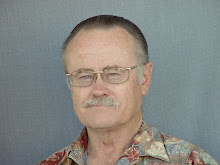Fear Not the Disabled -- Part 4
Retrieved from:
Editorial (2005). Fear Not the Disabled, Christianity Today, 49 (11), 28-29.
Database: Academic Search Premier
Continued from Part 3:
Unfortunately, the percentage of churches actively engaged on the issue is extremely low. In 1990, the Americans with Disabilities Act was enacted. Existing church buildings were exempt from many ADA mandates regarding accessibility, but many cities and states have laws that do not exempt churches.
Whether the law mandates it or not, we should make every reasonable effort, especially as we build new facilities, to remove the physical barriers that keep the disabled from our houses of worship. This means providing curb cuts, ramps, adequate handicapped parking spaces, and doors and aisles wide enough for a wheelchair. If we don't, they won't come. The disabled and the family members who care for them constitute one of the great unreached groups of our time.
Just as important as physical accommodation is an attitude that welcomes the physically and mentally challenged with open arms. A church that welcomes the disabled is great, but a bolder step forward is for churches to be inclusive. When people with disabilities are recognized as participants, not as "the needy," we all benefit. Paul reminded the Corinthians that "the parts of the body that seem to be weaker are indispensable." The disabled need the church -- almost as much as the church needs the disabled.
Arthur's Comment: Why should any church want to claim or insist on an excemption that would exclude members of the body of Christ?
Copyright of Christianity Today is the property of Christianity Today International and its content may not be copied or emailed to multiple sites or posted to a listserv without the copyright holder's express written permission. However, users may print, download, or email articles for individual use.
Editorial (2005). Fear Not the Disabled, Christianity Today, 49 (11), 28-29.
Database: Academic Search Premier
Continued from Part 3:
Unfortunately, the percentage of churches actively engaged on the issue is extremely low. In 1990, the Americans with Disabilities Act was enacted. Existing church buildings were exempt from many ADA mandates regarding accessibility, but many cities and states have laws that do not exempt churches.
Whether the law mandates it or not, we should make every reasonable effort, especially as we build new facilities, to remove the physical barriers that keep the disabled from our houses of worship. This means providing curb cuts, ramps, adequate handicapped parking spaces, and doors and aisles wide enough for a wheelchair. If we don't, they won't come. The disabled and the family members who care for them constitute one of the great unreached groups of our time.
Just as important as physical accommodation is an attitude that welcomes the physically and mentally challenged with open arms. A church that welcomes the disabled is great, but a bolder step forward is for churches to be inclusive. When people with disabilities are recognized as participants, not as "the needy," we all benefit. Paul reminded the Corinthians that "the parts of the body that seem to be weaker are indispensable." The disabled need the church -- almost as much as the church needs the disabled.
Arthur's Comment: Why should any church want to claim or insist on an excemption that would exclude members of the body of Christ?
Copyright of Christianity Today is the property of Christianity Today International and its content may not be copied or emailed to multiple sites or posted to a listserv without the copyright holder's express written permission. However, users may print, download, or email articles for individual use.
Labels: Disability


1 Comments:
It is unfortunate that some churches seem oblivious to the needs of those requiring alternative options such as barrier free access into their facilities and even customized programs to accommodate members with disabilities. Although these improvements and/or upgrades may be costly for older facilities, the benefits far outweigh the cost if these changes will empower the disabled to freely interact with other believers.
Post a Comment
<< Home